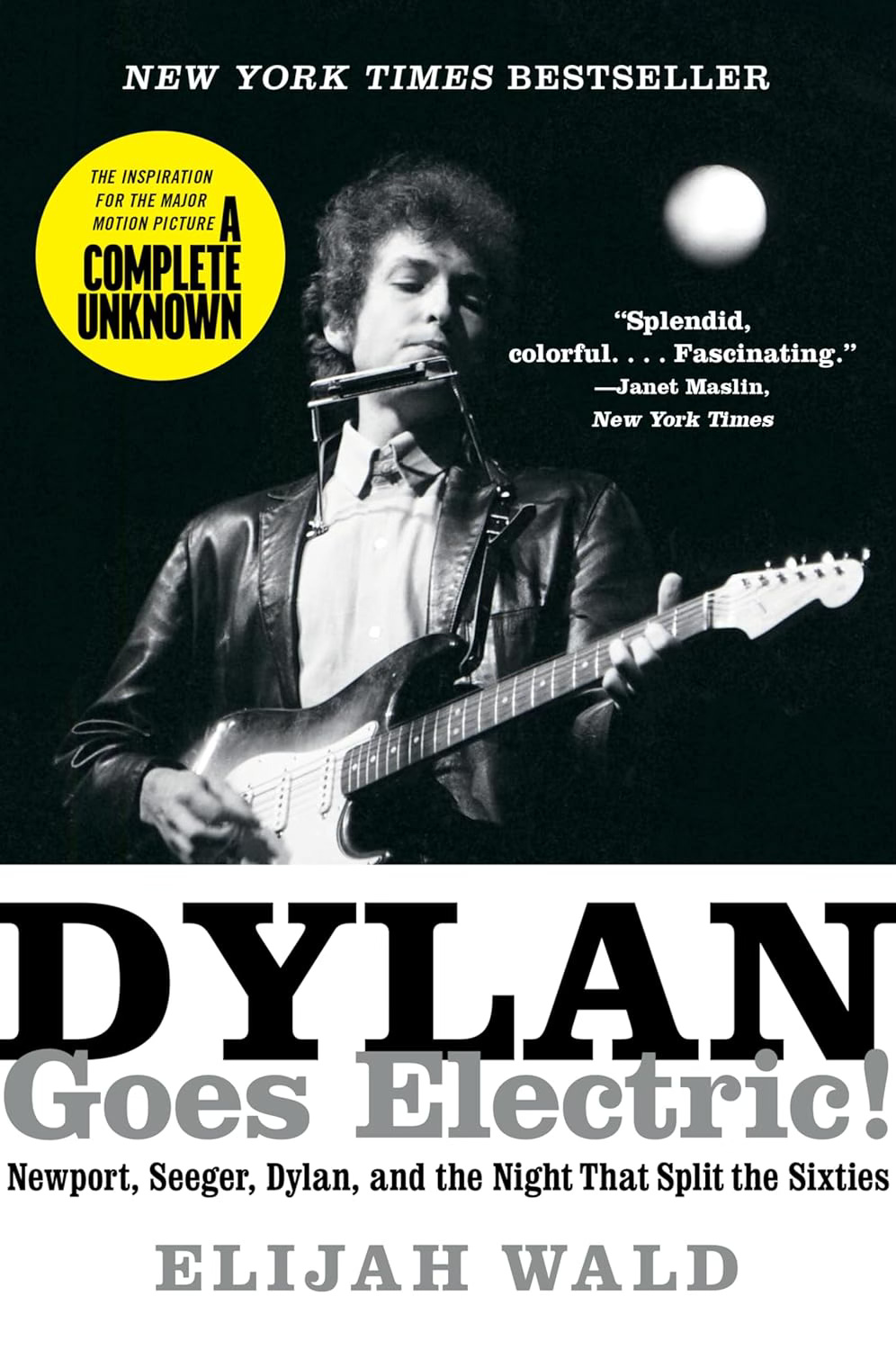Dylan goes electric!
The book that inspired the biopic A Complete Unknown
Hey y’all,
The joke among Bob Dylan fans like myself is that Bob Dylan starting to write his own tweets just as people start to leave Twitter in droves is exactly the kind of thing Bob Dylan would do.
One of his latest:
This is the kind of coded Dylan text that nerds like me love to unpack. My friend Matt Thomas picked out his favorite details:
- “what a title!”
- “I’m sure he’s going to be completely believable as me. Or a younger me. Or some other me.”
- “the fiasco at Newport”
But missed my favorite:
- “Timmy”
(The thing about Dylan is that he’s really funny. People sometimes forget this.)
I know more than one Dylan fan that’s nervous about the upcoming biopic A Complete Unknown, but the funniest take came from Walter Martin on the Thanksgiving episode his radio show:
“I’ve been losing sleep over [it], to be honest,” Walter joked. “I think my biggest concern is that I’m gonna like it…. My biggest fear is that I’m gonna like it.”
Same! (I mean, it’s James Mangold directing it, and Stephanie Zacharek put it on her top 10 of 2024, so it’s a valid concern.)
I actually had no idea that the movie is based on Elijah Wald’s Dylan Goes Electric!, a book, it turns out, that I’ve actually read!
I picked up the book in 2015, the year it was released, while vacationing in Rhode Island. Here’s the official description:
On the evening of July 25, 1965, Bob Dylan took the stage at Newport Folk Festival, backed by an electric band, and roared into his new rock hit, Like a Rolling Stone. The audience of committed folk purists and political activists who had hailed him as their acoustic prophet reacted with a mix of shock, booing, and scattered cheers. It was the shot heard round the world—Dylan’s declaration of musical independence, the end of the folk revival, and the birth of rock as the voice of a generation—and one of the defining moments in twentieth-century music…. In Dylan Goes Electric!, Elijah Wald explores the cultural, political and historical context of this seminal event that embodies the transformative decade that was the sixties.
I remember there being a lot of good stuff in there about some of my favorite themes — mainly theft, authenticity, and money and how they commingle.
Anyone hoping to understand the cultural upheavals of the 1960s has to recognize the speed with which the antiestablishment, avant-garde, and grass-roots movements were coopted, cloned, and packaged into saleable products and how unexpected, confusing, and threatening that was for the people who were sincerely trying to find new ways to understand the world or to make it a better place.
In other words, there was a lot of theft going on—both by the folks making the culture, and the suits making money off it.
Here’s Wald on the folk scenius in New York:
It was a vibrant, supportive scene, and Dylan was surrounded by fellow musicians, trading songs, learning from each other, and spurring one another on. He has sometimes been criticized for how much he borrowed from others, but that was not an issue until he became famous. At the time, as [Dave] Van Ronk put it, “We all lived with our hands in each other’s pockets. You’d learn a new song or work out a new arrangement, and if it was any good you’d know because in a week or two everybody else would be doing it.” In retrospect some people resented Dylan for stealing their songs or arrangements, while others were proud of what he picked up from them, and in both cases it only mattered because of what happened later.
Eric Von Schmidt, another musician on the scene, put it this way:
Keep reading with a 7-day free trial
Subscribe to Austin Kleon to keep reading this post and get 7 days of free access to the full post archives.




